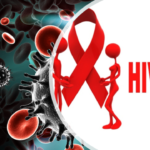First reported by Mail&Guardian, a groundbreaking HIV cure trial in Africa has yielded promising results, with 20% of participants achieving viral suppression after stopping antiretroviral therapy (ART). The study, conducted by the University of KwaZulu-Natal’s Africa Health Research Institute, involved 20 women living with HIV-1 subtype C, the most common strain in Southern Africa.
The trial, led by Professor Thumbi Ndung’u, aimed to assess the safety and efficacy of a novel “intervention” comprising two broadly neutralizing antibodies and an immune system activator. “We wanted to see how long it takes for the viral load to rebound. If you stop taking ARV today, within two weeks the virus will rebound,” Ndung’u explained.
Join our WhatsApp ChannelREAD ALSO: ‘Fully financing’ HIV response in Africa will save millions of lives: UNAIDS
The results showed that four participants were able to control their viral load to undetectable levels for a median of 1.5 years after stopping ART. While the study’s findings are encouraging, Ndung’u cautioned that this is not a cure for HIV, as the intervention was only effective in 20% of participants. “This is not a cure for HIV, because we cannot give patients something that only worked in 20% of participants, but it is a step in the right direction,” he said.
However, the results represent a significant step forward in the quest for alternative treatments. The study’s focus on women is particularly noteworthy, as they represent less than 20% of participants in HIV cure trials globally. “Women represent less than 20% of participants in HIV cure trials. So that means that the products being tested, if they don’t work in women, or if they cause some side effects in women we would not know, and that’s why it was very important for us to do this study,” Ndung’u emphasized.
Professor Krista Dong, of Fresh, highlighted the importance of this trial, given the dearth of HIV research involving women in Southern Africa. “We have no idea really, whether an intervention that we put in Caucasian men in San Francisco is going to work in a 13-year-old girl in Umlazi… We do know that there are differences, hormonal differences, and differences culturally, where say, someone in San Francisco will pop a pill for PrEP every day, whereas women say no, that’s not for us, we prefer injection.”
The trial’s results have sparked hope for the development of more effective and sustainable treatments for HIV, particularly in sub-Saharan Africa, where the disease remains a significant public health burden.

















